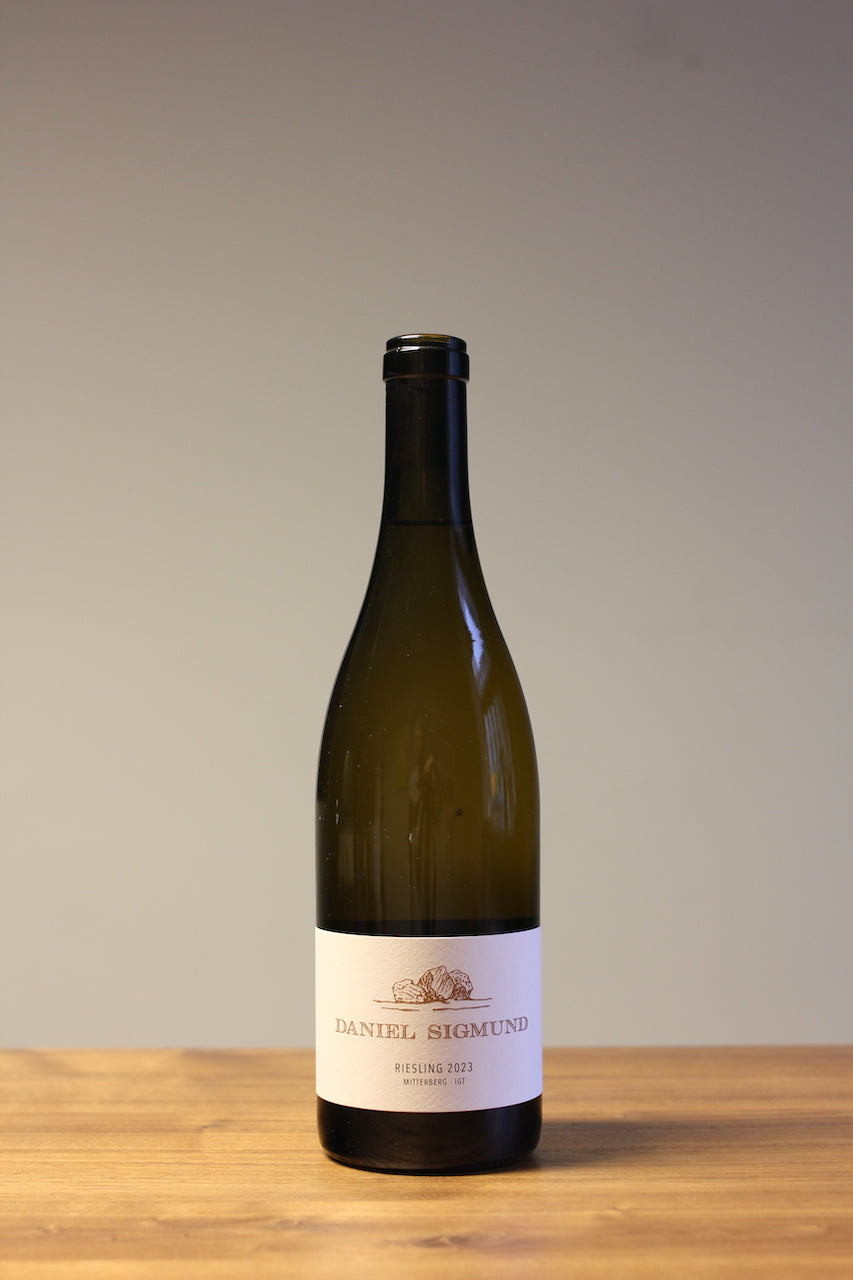Free shipping within Austria from € 99
Free shipping to Germany from € 120
Shipping costs within the EU
Payment methods
Daniel Sigmund
Riesling 2023
Riesling 2023
Couldn't load pickup availability
In Daniel Sigmund’s world, there are a few constants. Once his grapes have fermented, for instance, he ages them for 11 months in wooden barrels and then for another five in the bottle — regardless of whether it’s Pinot Noir, Blauer Portugieser, or, as in this case, his Riesling.
This approach is partly pragmatic — after all, he needs the barrels for the next vintages. But it’s also just about the amount of time his wines require to find their balance and develop their subtle yet always precise aromas.
The maturation of his wines, however, is merely the final piece of a process that, from start to finish, is guided by a clear philosophy — another constant. In the vineyard, despite the often cool and damp conditions of the Eisack Valley, he works strictly organically. Cultivation is entirely manual, and the vines are treated almost like good friends. The Riesling vines grow on a steep slope between 650 and 770 meters above sea level, rooted in quartz phyllite and granite.
They quite literally breathe mountain air — and you can taste it in the wine. Other defining traits include aromas reminiscent of ripe apples, wet stone, herbs, and blossoms; a taut yet never sharp body; a silky texture; and a vertical, highly vibrant finish.
Technical Sheet
Grape Variety: Riesling
Vineyard: Slopes interspersed with quartz phyllite and granite at 650–770 meters above sea level, in the Tschötsch and Holzer sites
Harvest: By hand
Fermentation: Spontaneous | wild yeasts | no temperature control
Aging: In wooden barrels
Filtration: None
SO₂: < 25 mg/l
Alcohol Content: 11,5% vol
Closure: Natural cork
Serving Temperature: 10–12°C
Optimal Drinking Window: From now until 2035
Volume and Price per Liter: 0.75 l / (€33.50 per liter)
Philosophy: All winemakers listed by Vinonudo work their vineyards using compost, organic fertilizers, and natural preparations, and refrain from using herbicides, pesticides, and synthetic fertilizers.
Share







